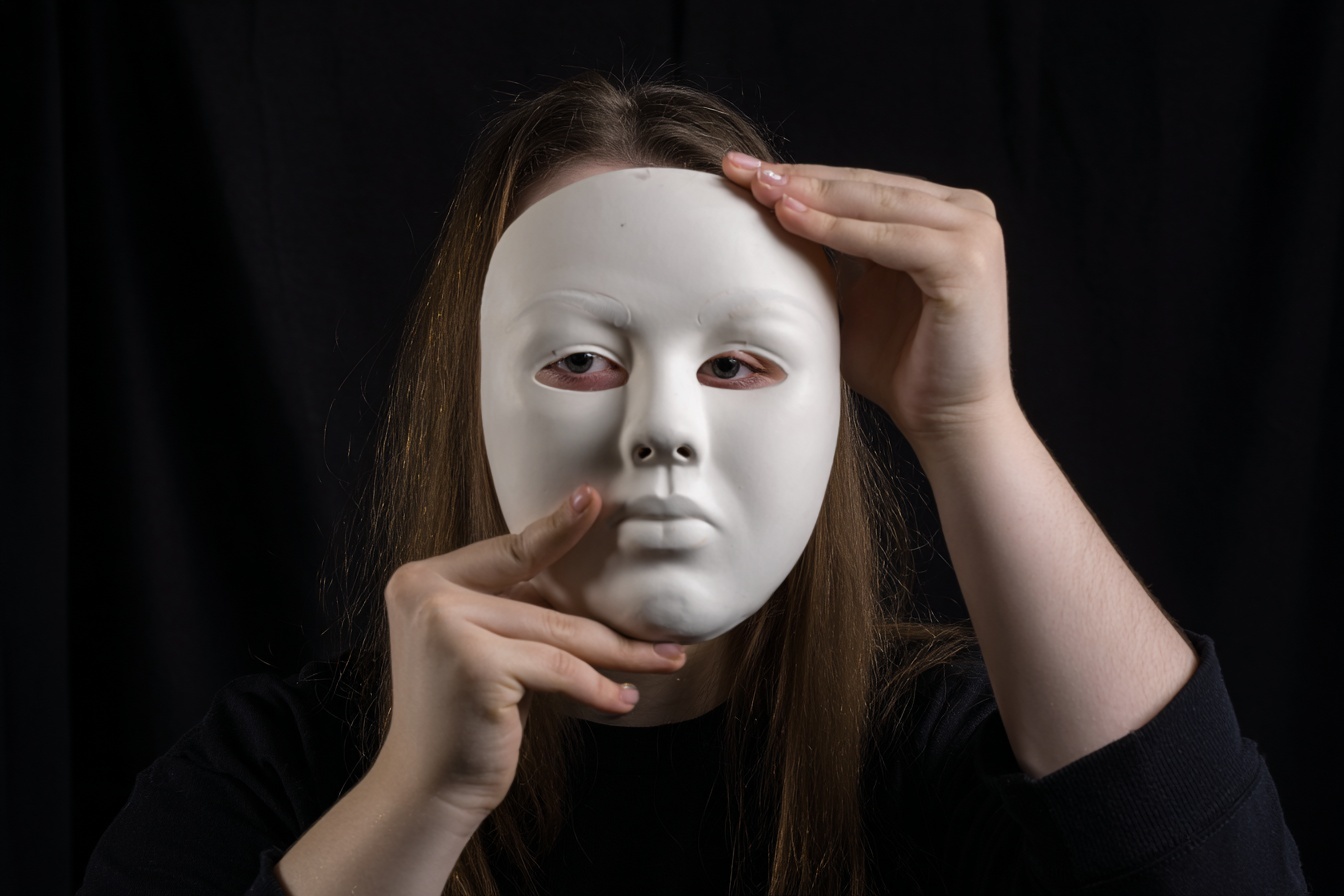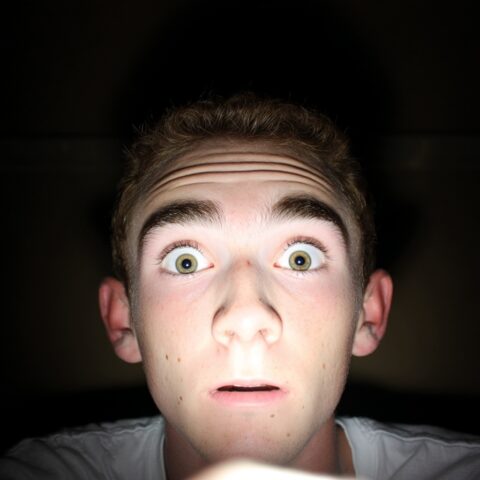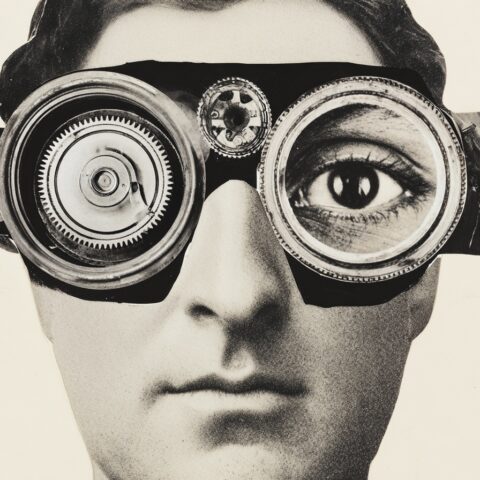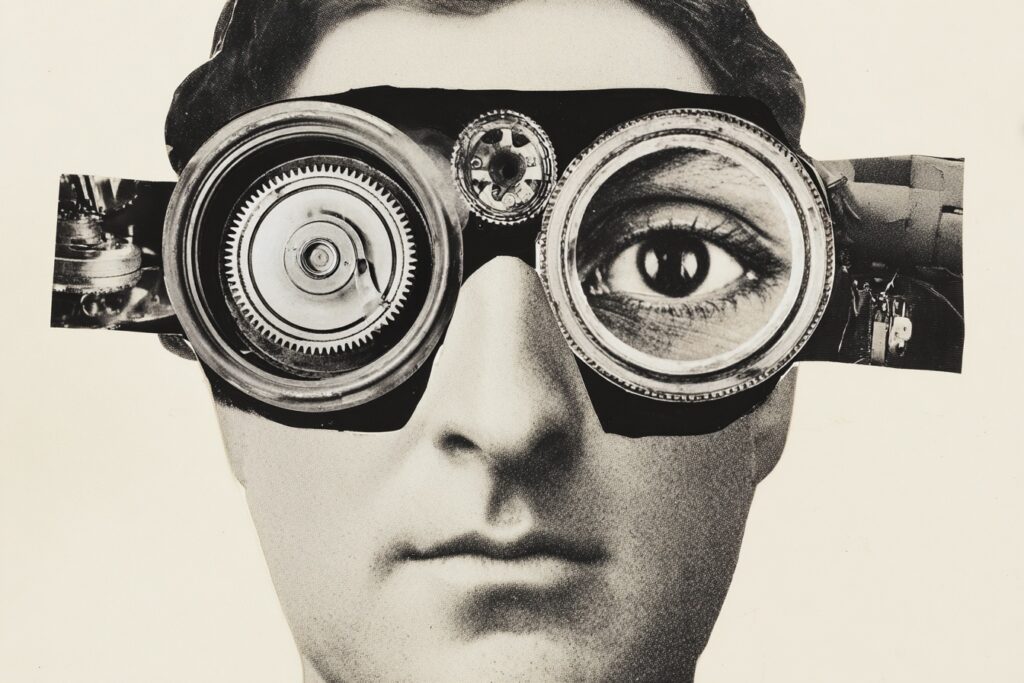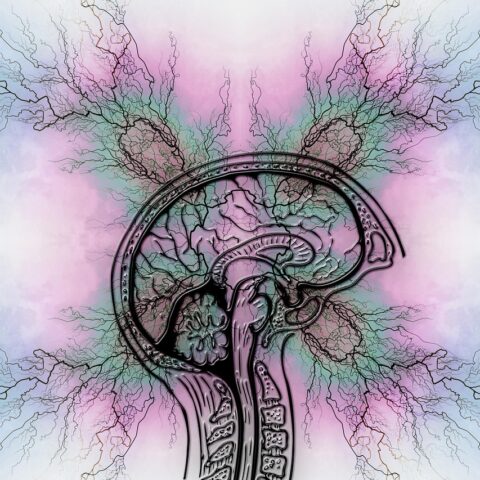Neurodivergent masking is the survival strategy of hiding ADHD, autism, and other traits to “fit in.” But it comes at a cost. Learn what masking is, why we do it, and how to start unmasking safely.
arn what masking is, why we do it, and how to start unmasking safely.
😶 What is Neurodivergent Masking?
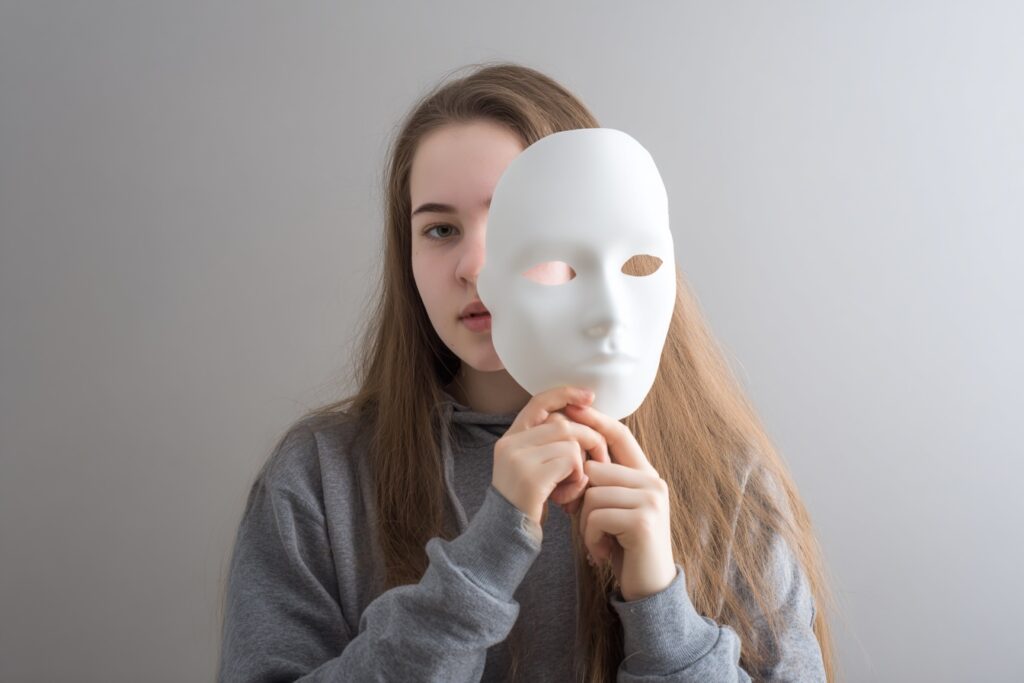
I was really good at pretending to be fine.
Good at eye contact, good at smiling at the right time, good at mimicking whoever I was around. I played the part of “functional adult” so well that no one — including me — questioned it.
Until I broke.
Until I burned out so hard I couldn’t hold a conversation without crying.
That’s when I learned the word: masking.
Neurodivergent masking is what happens when your brain doesn’t match the world’s expectations — so you hide it. You camouflage. You fake it. You contort yourself into someone socially acceptable.
And you get so good at it, you forget who you actually are underneath.
Table of Contents
🎭 What is neurodivergent masking?
Masking is when a neurodivergent person — often someone with ADHD, autism, OCD, or sensory processing differences — suppresses or hides their natural traits to appear “neurotypical.”
It’s a social survival strategy.
You learn to:
- Smile when you’re melting down
- Make eye contact even when it hurts
- Copy people’s tone, posture, vocabulary
- Suppress stimming
- Avoid talking about your real interests
- Pretend to understand conversations
- Numb out or dissociate during overstimulation
It’s not lying. It’s self-preservation.
The National Autistic Society defines masking (or camouflaging) as “strategies used by autistic people to appear non-autistic in social situations.” Read more here
🤯 Why do neurodivergent people mask?
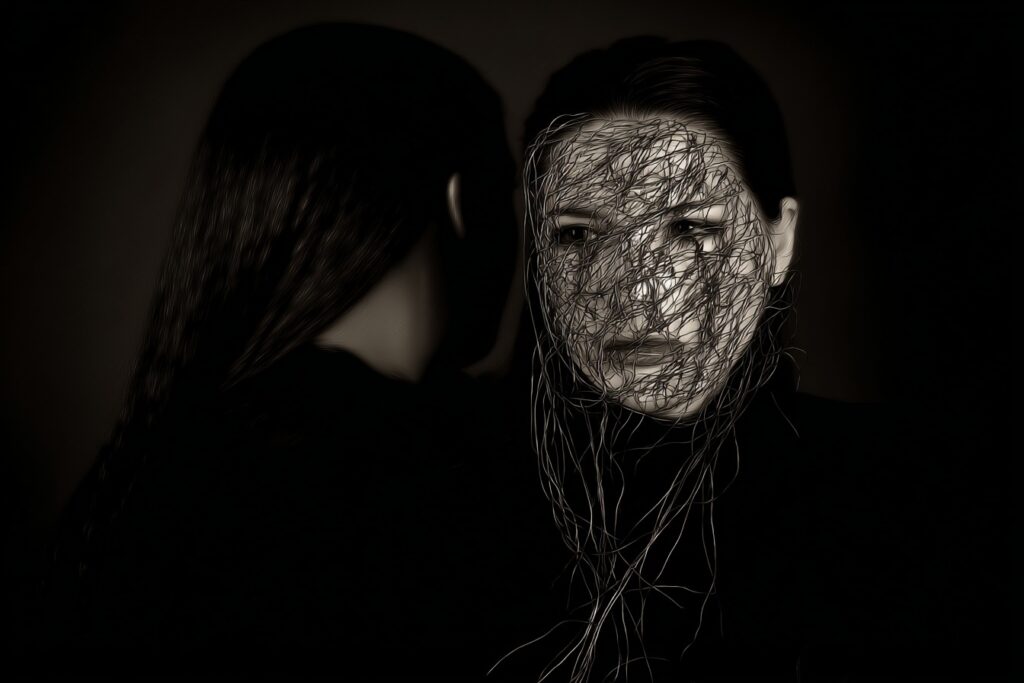
Because we’re taught that our default mode isn’t okay.
- When we stim, we’re told to stop.
- When we miss social cues, we’re corrected harshly.
- When we shut down, we’re called rude.
- When we meltdown, we’re told we’re overreacting.
- When we ask “too many questions,” we’re made to feel stupid.
So we adapt. Especially women, BIPOC folks, and queer ND people — who often face multiple pressures to conform at once.
And it works — but at a steep cost.
A 2020 study published in Autism in Adulthood found that autistic masking is strongly linked to anxiety, depression, and suicidal ideation.
Read the study summary
Also Read About:
🧠 What does masking look like? (Even if you don’t know you’re doing it)
Here’s how I knew I was masking, long before I had the word for it:
- I’d leave social events completely drained, no matter how “fun” they were
- I couldn’t answer “what do you like to do for fun?” without panic
- I laughed at things I didn’t find funny
- I changed how I spoke depending on who I was around
- I had to mentally rehearse even simple conversations
- I would physically mimic people without realizing it
- I felt like my personality changed in every environment
- I never knew if I was being me or just… a version of me that was easier to digest
If any of that hits? You might be masking too.
💢 The emotional cost of long-term masking
😤 Burnout
The most common outcome. You feel “functional” for weeks or months, then crash. Can’t speak, can’t work, can’t think.
You may feel like you’re lazy or weak — but really, you’ve been running a high-intensity simulation 24/7.
😵 Identity confusion
You’ve performed for so long, you don’t know what’s “you” anymore. You might feel numb, hollow, or emotionally disconnected — even if everything looks fine from the outside.
😰 Anxiety and hypervigilance
Masking requires constant mental processing:
- “Did that sound normal?”
- “Are they judging me?”
- “Was that too weird?”
It’s exhausting. And it keeps your nervous system on high alert, even when nothing is “wrong.”
🧩 Delayed diagnosis
If you’re really good at masking, clinicians may miss your neurodivergence entirely — especially if you’re high-functioning, successful, or articulate. This is particularly true for women, trans, and BIPOC individuals.
🧾 Signs You’re Masking (Even If You Don’t Realize It)
Use this checklist as a mirror — not a diagnosis.
✅ = Often true
🔸 = Sometimes true
❌ = Rarely or never
- ✅ I feel exhausted after most social interactions
- ✅ I change how I talk or act depending on who I’m with
- ✅ I fake eye contact, even if it feels unnatural
- ✅ I have “scripts” I rely on in conversations
- ✅ I downplay or hide my real interests
- ✅ I force myself to smile or laugh to keep things comfortable
- ✅ I mirror people’s body language or tone without realizing it
- ✅ I only stim (fidget, rock, flap, tap, etc.) when I’m alone
- ✅ I struggle to answer questions like “Who are you?” or “What do you like?”
- ✅ I feel like I’m always acting, and I’m not sure who the “real me” is anymore
If you checked off several of these — welcome. You’re not alone.
🌱 How to Start Unmasking Safely (Without Burning Your Life Down)
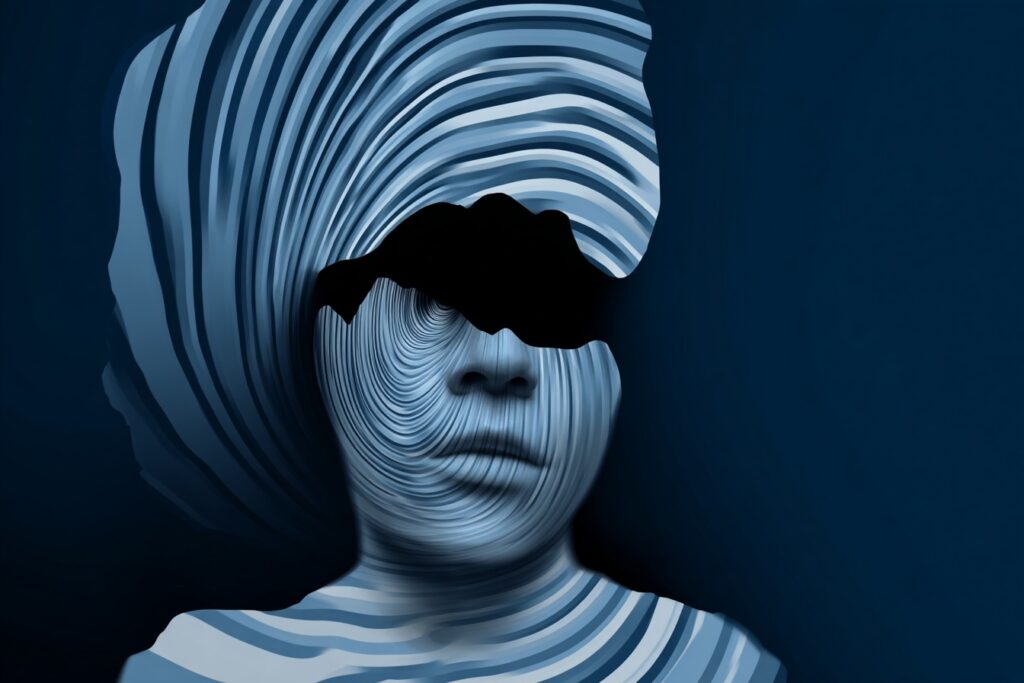
Unmasking is not a sprint. It’s a slow, intentional reclaiming of yourself. Here’s how to start:
🧘 1. Notice without judgment
You don’t need to stop masking immediately. Just start noticing when you do it. Where? With who? Why? Awareness is the first crack in the mask.
🧑🤝🧑 2. Find low-stakes safe zones
This could be one friend, a therapist, a Discord server, or even just journaling. Somewhere you can experiment with letting the mask drop.
🧩 3. Let your body lead
Start stimming in private again. Let yourself fidget, bounce, vocalize, pace. Your body remembers who you were before you got trained out of it.
🗣️ 4. Practice honest communication
Instead of saying “I’m fine,” try “I’m overwhelmed but managing.”
Instead of forcing yourself to go out, say “I need some recharge time.”
Little truths = big relief.
⚠️ 5. Expect backlash — even from yourself
Unmasking often brings waves of guilt, shame, grief, and pushback. That’s normal. You’re not regressing — you’re realigning.
❓ FAQ: 12 Questions About Neurodivergent Masking
1. What is neurodivergent masking?
It’s when someone hides or suppresses their neurodivergent traits (like stimming, social difficulty, sensory needs) to appear neurotypical.
2. Is masking the same as people-pleasing?
Not exactly. Masking is deeper — it’s about survival. It’s a neurological and behavioral adaptation, not just emotional compliance.
3. Do only autistic people mask?
No. People with ADHD, OCD, sensory processing disorders, and other neurodivergences also mask — often without knowing it.
4. Why do I feel so drained after social events?
Because you’re likely masking. Pretending to be “on” for hours burns a massive amount of cognitive energy.
5. Can masking delay diagnosis?
Absolutely. Many women, BIPOC individuals, and high-masking men go undiagnosed for years — or are misdiagnosed with anxiety, depression, or BPD.
6. Is masking always harmful?
Not always. Sometimes it’s necessary for safety or survival. But chronic, unconscious masking over time does lead to burnout and identity fragmentation.
7. Can you mask in relationships too?
Yes. Many neurodivergent people “perform” in romantic or familial settings to avoid rejection, conflict, or shame.
8. How do I know if I’m masking or just being polite?
Ask yourself: “Am I doing this because I want to? Or because I’m afraid of what will happen if I don’t?”
9. What does unmasking actually look like?
Being real. Saying what you mean. Stimming freely. Honoring your needs instead of forcing yourself to meet neurotypical expectations.
10. Why is masking so common in women?
Because women are often socialized from a young age to accommodate, please, and avoid standing out. This trains masking early.
11. Will I lose friends or jobs if I unmask?
Sometimes. But the right people will stay — and you’ll feel 100x more connected to the life you actually want.
12. Where can I learn more?
Start with The Neurodivergent Woman podcast, or read Unmasking Autism by Dr. Devon Price — a must-read on this exact topic.
🐐 About ADHD Goat
ADHD Goat is a blog by and for the perpetually overwhelmed, wildly sensitive, beautifully chaotic people figuring out life one meltdown at a time. We cover ADHD, autism, masking, trauma, burnout, identity — and how to rebuild when you’ve pretended for too long.
✍️ About the Author
Jenny Mirah is a neurodivergent writer with a long history of masking her ADHD and anxiety so well that she fooled everyone — including herself. She writes to help others feel seen before they burn out like she did.
💌 Want to request a topic or share your story?
Have something you want us to write about?
A weird question, a personal spiral, or a topic no one else is covering?
👉 Submit a topic here

